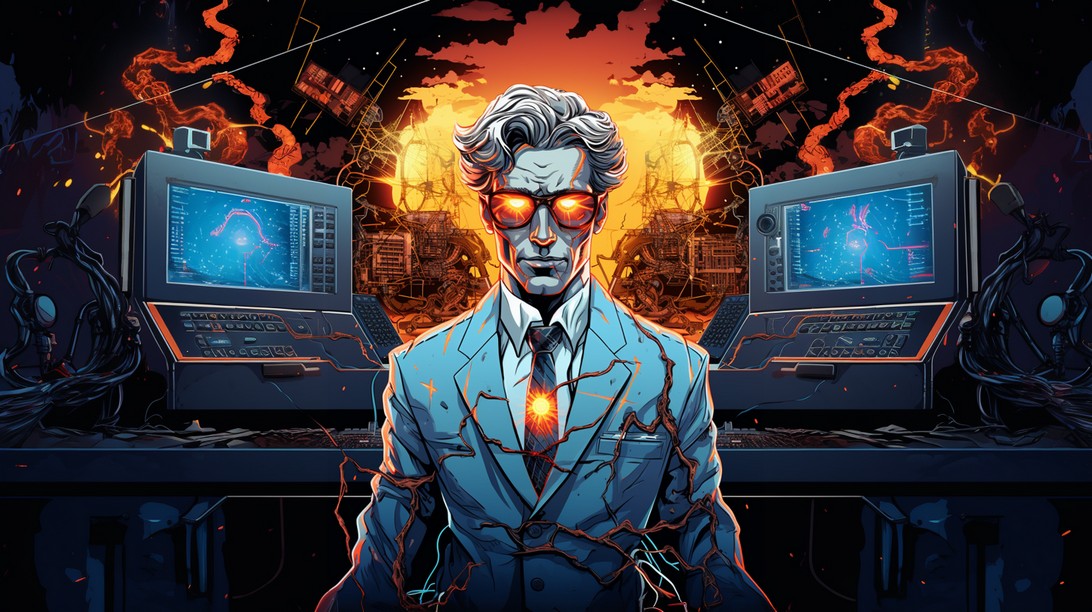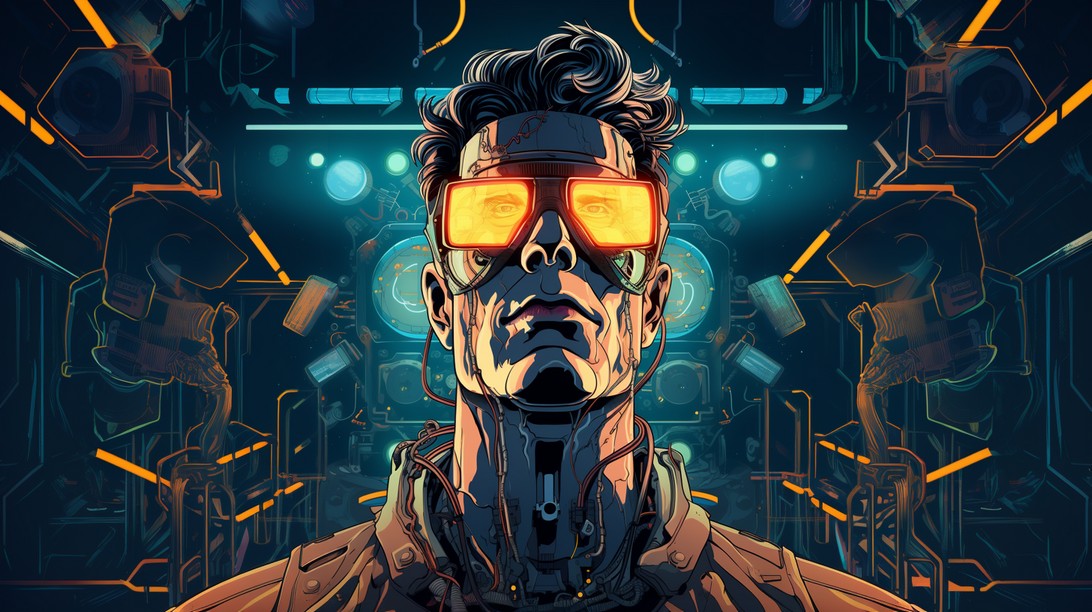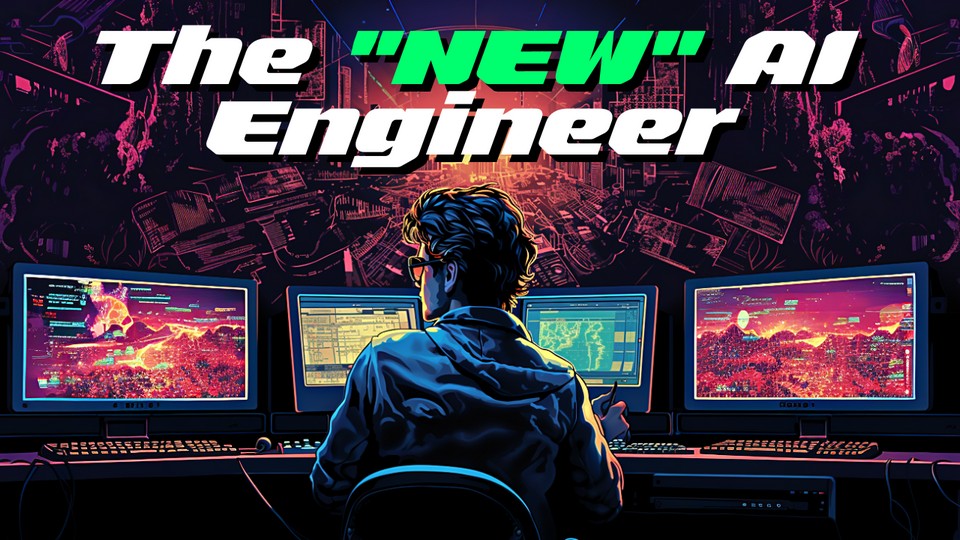The world of artificial intelligence (AI) is constantly evolving, and with it comes new roles and opportunities. One such position that is quickly gaining traction is the “AI Engineer.”
The AI Engineer represents a new breed of professionals who are not only adept at traditional software engineering but are also proficient in machine learning and AI research.
Read more or watch the YouTube video(Recommended)
YouTube:
What is an AI Engineer?
An AI Engineer applies and productizes AI, blending software engineering, machine learning, and AI research. They stay updated with AI advancements, utilize various programming paradigms, and bring AI applications to real-world settings.
Contrary to traditional belief, a PhD is not necessarily a requirement for this role. Instead, practical engineering skills often outshine academic credentials when it comes to implementing and shipping AI products in real-world settings.
These engineers use all paradigms of programming, including classical software, machine learning models, and the new 3.0 software paradigm. The 3.0 paradigm is largely based on Large Language Models (LLM) prompting, a game-changing approach that combines human-written code, machine learning models, and prompted code.
The Impact of AI Engineers on Various Industries
The role of an AI Engineer is perhaps one of the most transformative in today’s tech-driven world. The ability to apply and productize AI can have a profound impact on various industries. From healthcare, where AI can help diagnose diseases more accurately, to finance where it can predict market trends – the possibilities are virtually endless.

AI Engineers are also instrumental in automating tasks, as demonstrated by their ability to chain APIs together to perform tasks autonomously. By automating routine tasks, organizations can boost their efficiency and focus more on strategic decision-making.
The AI Engineer’s Skills
An AI Engineer, much like in any other job, needs a diverse set of skills. However, given the specialized nature of their work, their toolkit includes a mix of technical knowledge, practical skills, and innovative problem-solving abilities.
One cannot overstate the importance of AI model expertise in an AI Engineer’s skillset. This expertise enables them to understand and utilize various AI models effectively, including open-source ones and GPT-4. It also plays a critical role in their ability to stay updated with the fast-paced evolution of the AI field.
Furthermore, mastery over various tools is critical for an AI Engineer. They should be proficient with AI tools such as LangChain, Llama Index, Pinecone, and others that aid in handling embedding models. Familiarity with these tools allows for efficient handling of complex tasks and can drastically enhance their productivity and deploying autonomous AI agents.
Coding fluency is another crucial skill for an AI engineer. Comfort across Python and JavaScript is necessary due to their widespread use in AI-related tasks. However, coding fluency extends beyond just knowing languages—it also includes the ability to write efficient, maintainable code that can be easily understood by others.
Real-World AI Applications: A Game Changer
AI Engineers play a pivotal role in translating theoretical AI advancements into real-world applications. This ability to translate often complex AI research into tangible solutions can revolutionize industries, from healthcare to finance, education, and beyond.

One such example is the use of system prompts in ChatGPT to solve problems. This practical application of AI demonstrates how AI engineers can leverage machine learning models and linguistic creativity to create solutions that were once considered beyond reach.
Moreover, the potential of AI extends to automating tasks. The ability to chain APIs together to perform tasks autonomously is becoming a crucial part of an AI engineer’s toolkit. This skill not only enhances efficiency but also opens avenues for new applications of AI—like automating complex workflows or creating autonomous systems.
GPT-4V: The Future Power Tool in an AI Engineer’s Stack
AI engineers are the new-age mavericks who are not just comfortable with traditional software engineering but are also proficient in machine learning and AI research. They are the bridge between complex AI research and real-world applications. Now, imagine equipping these tech-savvy pros with GPT-4 Vision (GPT-4V). What you get is a paradigm shift in how AI applications are developed, deployed, and scaled.
GPT-4V as a Multimodal Model for AI Engineering
AI engineers are no strangers to working with Large Language Models (LLMs), which form the core of the 3.0 software paradigm. GPT-4V, with its text and image interpretation capabilities, takes this a step further. An AI engineer can now use GPT-4V to interpret complex data sets that include both textual and visual data, providing a richer, more nuanced understanding of the problem at hand.
Challenges for the AI Engineer
While the potential of AI is undeniable, it does come with its share of challenges. Staying updated with a rapidly evolving field like AI is a daunting task. The speed at which new research models and techniques are emerging requires constant learning and adaptation from AI engineers.
Another challenge lies in balancing different programming paradigms—human-written code, machine learning models, and prompted code. Each paradigm offers unique advantages, but also poses its own sets of challenges. Striking the right balance between these paradigms is a complex task that can significantly impact an AI solution’s effectiveness.
Moreover, as AI models develop their capacity to prompt themselves more effectively, the role of prompt engineering may need to be reevaluated. However, this shift also presents an opportunity for AI engineers to redefine their roles and bring fresh perspectives to the field.
Prompt Engineering: The Heart of AI Engineering
AI engineering also involves a significant amount of prompt engineering. This field combines linguistic creativity with technical expertise to generate prompts that guide AI models towards desired outputs.
The choice of prompts can dramatically alter model outputs—thereby highlighting the importance of selecting appropriate prompts for different tasks.
Prompt engineering is also essential when working with large language models (LLMs). Fine-tuning these models for specific applications requires careful crafting of prompts that can guide the model’s responses effectively. This process involves a mix of understanding the underlying model’s behavior and creative problem-solving abilities.

The Evolving Role of an AI Engineer
As we look towards the future of AI engineering, it is clear that this role will continue to evolve in response to advancements in technology. One key area to watch is the development of foundation models and their increasing capabilities.
Moreover, with AI research becoming more accessible as a service, there will likely be an increased demand for AI engineers who can bridge the gap between research findings and practical applications. This shift may lead to a greater emphasis on practical engineering skills over traditional academic credentials.
Finally, as we ponder whether prompt engineering will remain relevant as models develop their capacity to self-prompt more effectively, we should remember that technology is ever-evolving. Today’s cutting-edge techniques may become obsolete tomorrow—but what will remain constant is the need for professionals who can adapt to these changes and continue to drive innovation in the field.
In conclusion, being an AI engineer is about much more than just understanding how to apply technology—it’s about staying ahead of technological advancements and finding innovative ways to solve problems. And as we continue our journey into this exciting new frontier of technology, it’s clear that those who embrace this mindset will be at the forefront of this revolution.
FAQ
1. What is the role of an AI Engineer?
An AI Engineer is a professional who applies and productizes AI. This role involves staying up-to-date with the latest AI research and developments, utilizing paradigms of programming including classical software, machine learning models, and the new 3.0 software paradigm which is largely based on Large Language Models (LLM) prompting.
2. What impact do AI Engineers have on various industries?
AI Engineers play a transformative role in today’s tech-driven world. They apply and productize AI in various sectors, from healthcare where AI can help diagnose diseases more accurately, to finance where it can predict market trends. They also play a significant role in automating tasks, thereby boosting an organization’s efficiency
3. What skills are required to become an AI Engineer?
The skills of an AI Engineer include a diverse mix of technical knowledge, practical abilities, and innovative problem-solving skills. These professionals need to have AI model expertise, mastery over various tools like Lang Chain, Llama Index, Pinecone, and fluency in coding languages, especially Python and JavaScript.
4. What are the challenges faced by an AI Engineer?
The challenges faced by an AI Engineer include staying updated with the fast-paced evolution of the AI field, balancing different programming paradigms such as human-written code, machine learning models, and prompted code, and adjusting to the shift in the role of prompt engineering as AI models develop their capacity to prompt themselves more effectively.


